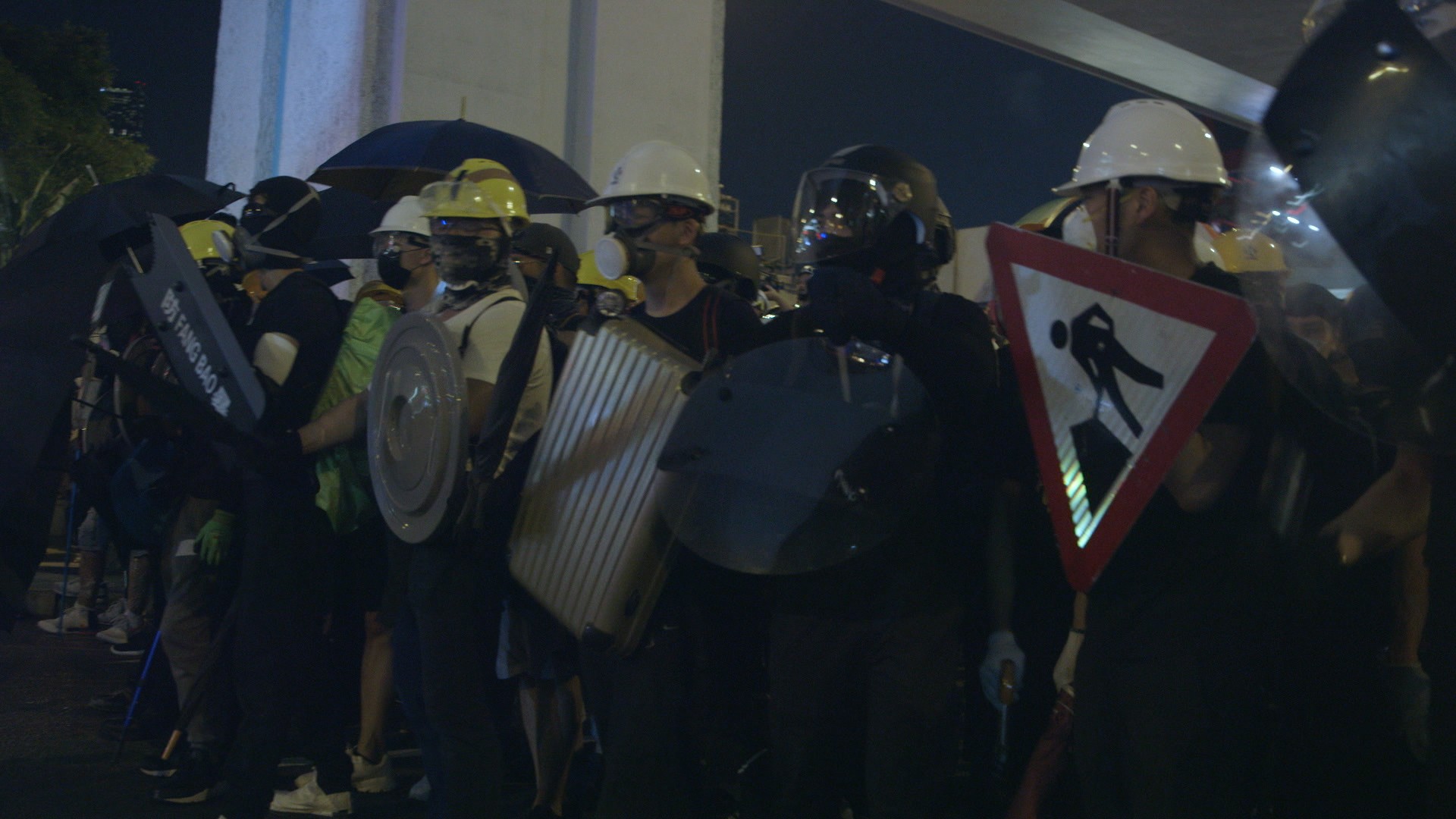Kyodo via AP Images
A former employee of the British consulate in Hong Kong who was detained for fifteen days in mainland China says he was tortured by secret police, who accused him of being a British spy and fomenting protests in the city.Simon Cheng Man-kit, a 29-year-old Hong Kong citizen, claimed Wednesday that he was beaten, blindfolded, chained to a cross, held in stress positions for hours and forced to sing the Chinese national anthem to stay awake when he was detained in August.“I was hung (handcuffed and shackled) on a steep X-Cross doing a spread-eagled pose for hours after hours,” Cheng wrote in a Facebook post Wednesday. “It felt extremely painful.”The claims threaten to further strain relations between Britain and China, following Beijing’s allegations that Western powers have played a role in stirring up the protests, which are entering their six month and becoming increasingly violent and disruptive. Britain’s Foreign Secretary Dominic Raab appeared to endorse Cheng’s account Wednesday, condemning China’s treatment of the former consulate employee, which he said “amounts to torture.”Cheng, a trade and investment officer at the consulate, was detained by Chinese secret police as he was attempting to return from a work trip to the mainland city of Shenzhen on Aug. 8. His sudden disappearance made international headlines, after his partner went public with her concerns he was being held by the secret police.Cheng says he was subjected to lengthy interrogations, where agents accused him of being a British spy, and pressed him to admit that the British government was behind the pro-democracy protests roiling the city.READ: Hong Kong protesters escaped a besieged campus by crawling through tunnels and climbing down from overpassesDuring his detention, he said he was placed in a so-called “tiger chair”– a metal chair with bars preventing the occupant from moving — and forced to do stress tests, such as squatting or holding himself in a chair pose, for hours on end.“They beat me every time I failed to do so using something like sharpened batons. They also poked my vulnerable and shivering body parts, such as knee joint,” he wrote. “I was blindfolded and hooded during the whole torture and interrogations, I sweated a lot, and felt exhausted, dizzy and suffocated.”Cheng said that as part of his work for the consulate, he kept tabs on the pro-democracy protests, but says this was purely monitoring work to assess where the movement was headed, rather than an attempt to influence them. In a personal capacity, he said he supported the movement and had attended several peaceful demonstrations.Cheng said Chinese agents eventually told him he had been reported for “soliciting prostitutes” during his time in Shenzhen — and that if he cooperated he would face a lesser punishment. He said he was recorded reading two letters of apology, one for soliciting prostitution, and the other for betraying the motherland.Cheng was sent back to Hong Kong after 15 days, but said Chinese secret police told him they would bring him back to detention on the mainland if he spoke out about his experiences. As a result, he has fled to an undisclosed third country "for security reasons" and is seeking asylum.In his statement Wednesday, British Foreign Secretary Raab said the British government was working to support Cheng and his fiancée to come to the UK.Raab said he had summoned the Chinese Ambassador to “express our outrage at the brutal and disgraceful treatment of Simon.”“I have made clear we expect the Chinese authorities to investigate and hold those responsible to account,” he said.But Chinese officials say they have rejected the summons and have instead summoned Britain’s ambassador to Beijing to express China’s indignation.Chinese Foreign Ministry spokesman Geng Shuang said Wednesday that the Chinese public security department had treated Cheng lawfully, and noted Cheng had “made a full confession about his illegal actions.”“We express our great indignation towards the UK's recent series of mistaken remarks and actions,” he said.The spat comes as the five-month protest movement has entered its most violent phase yet, with a fiery standoff between protesters and riot police at Hong Kong Polytechnic University (PolyU) entering its fourth day.READ: Parents are begging Hong Kong police to let their kids leave a besieged university campusA hard core of about 50 protesters, some armed with weapons like bows and arrows, remained on the campus Wednesday, resisting surrendering to police who have blockaded the university since Sunday. About 800 protesters have surrendered to police since the standoff began, while more than 100 others made daring escapes by crawling through tunnels or climbing down ropes from underpasses to avoid arrest.READ: The brutality of Hong Kong police is putting pro-democracy protesters in hospitalThe bill, which still needs to go to the House of Representatives before it can go before President Donald Trump for approval, would make Hong Kong’s special trading status with the U.S. contingent on an annual evaluation of whether it held enough autonomy from Beijing to qualify. The legislation would also allow the U.S. to sanction Chinese officials responsible for human rights violations in Hong Kong.Shuang railed against the bill Wednesday, saying that it whitewashed “the illegal and criminal acts of Hong Kong violent elements for ulterior political purposes,” and would only “boost the support of the extremists and violent elements” in Hong Kong. Cover: A demonstrator throws a tear gas grenade back at police near the Hong Kong Polytechnic University in Kowloon district on Nov. 18, 2019. (Kyodo via AP Images) ==Kyodo
Cover: A demonstrator throws a tear gas grenade back at police near the Hong Kong Polytechnic University in Kowloon district on Nov. 18, 2019. (Kyodo via AP Images) ==Kyodo
Advertisement
Advertisement
Advertisement
Beijing is also bristling at fresh moves in Washington to pressure China over its handling of the protest movement. On Tuesday, the U.S. Senate unanimously passed legislation on Tuesday aimed at protecting human rights in Hong Kong.
Advertisement
